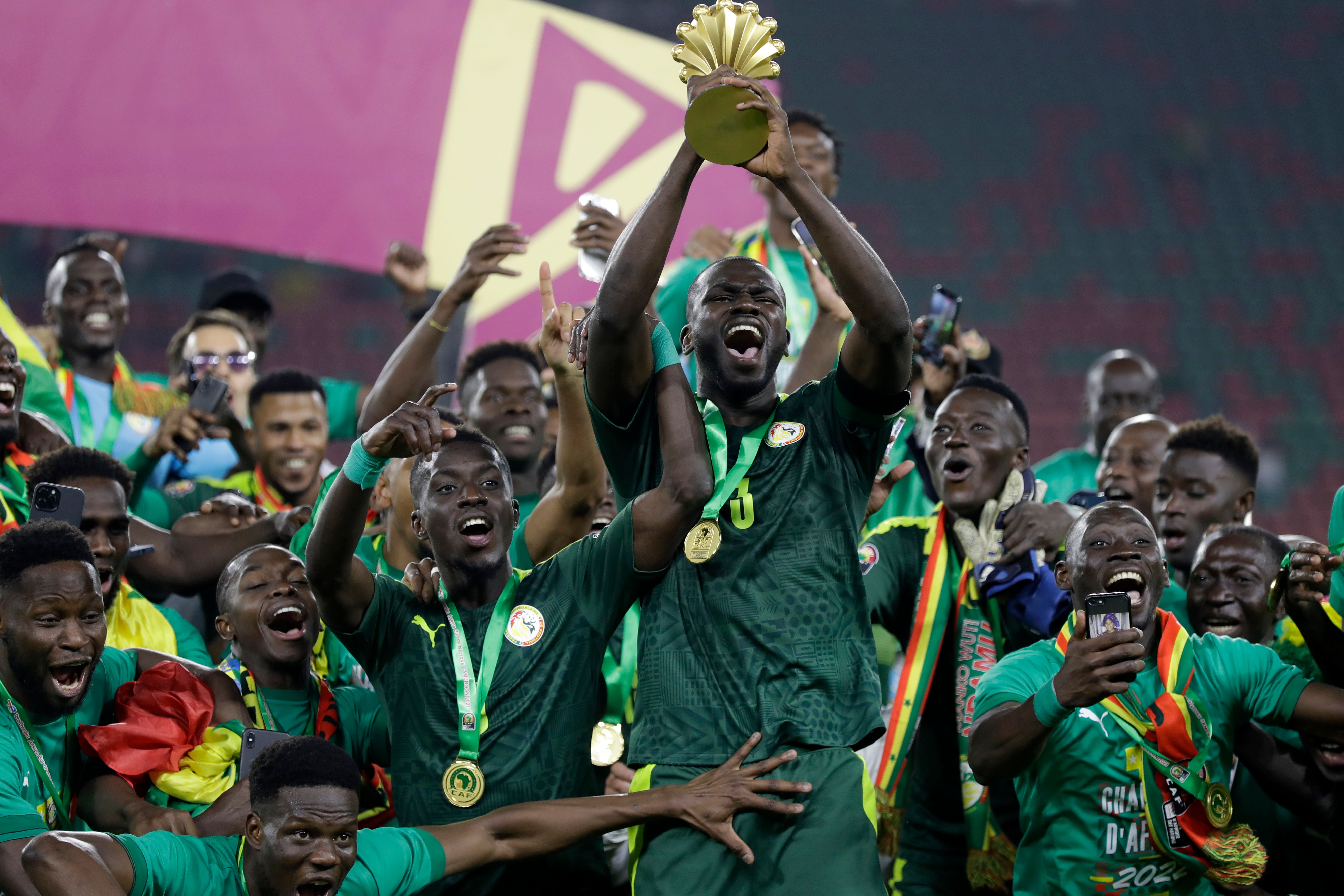African teams played fewest games against World Cup opponents in last four years
All five African sides exited in the group stage in 2018

Your support helps us to tell the story
From reproductive rights to climate change to Big Tech, The Independent is on the ground when the story is developing. Whether it's investigating the financials of Elon Musk's pro-Trump PAC or producing our latest documentary, 'The A Word', which shines a light on the American women fighting for reproductive rights, we know how important it is to parse out the facts from the messaging.
At such a critical moment in US history, we need reporters on the ground. Your donation allows us to keep sending journalists to speak to both sides of the story.
The Independent is trusted by Americans across the entire political spectrum. And unlike many other quality news outlets, we choose not to lock Americans out of our reporting and analysis with paywalls. We believe quality journalism should be available to everyone, paid for by those who can afford it.
Your support makes all the difference.African teams played fewer matches against World Cup nations ahead of the tournament than their counterparts from other confederations.
Since the previous World Cup in 2018, PA analysis shows there have been a total of 269 games between the 32 teams heading to Qatar, of which only 25 (9 per cent) have involved African sides.
Senegal, Morocco, Tunisia, Cameroon and Ghana have played an average of seven matches in the last four years against their potential opponents at the tournament, by far the lowest among continents represented.
Which African side is best-placed to challenge in Qatar?
No African team has progressed beyond the quarter-finals at a World Cup, with Ghana most recently reaching the last eight in 2010.
All five representatives crashed out in the group stage in 2018, combining for just three wins in 15 matches.
Senegal (18th) – who begin their campaign against the Netherlands on Monday – are the highest-ranked of the African contingent in 2022, ahead of Morocco (22nd), Tunisia (30th), Cameroon (43rd) and Ghana (61st).
Aliou Cisse’s side have won 67 per cent of their matches since the last World Cup and underlined their credentials by winning the Africa Cup of Nations at the start of the year.
However, only four of Senegal’s opponents since 2018 will be lining up in Qatar, the fewest of any nation.
The remaining four African teams are in a similar position, with Cameroon having contested six matches against World Cup opposition since 2018, while Ghana, Morocco and Tunisia have played eight apiece.
In contrast, Mexico have featured in 29 meetings with World Cup nations, ahead of the United States on 28.
England have played in 21 such matches, the same number as tournament favourites Brazil.
Qatar – who as hosts did not play any qualifiers – have managed to schedule 18 fixtures against potential tournament opponents.
Europe bids to continue recent dominance
European nations have won the past four World Cups, with Argentina in 2014 the only side preventing a clean sweep of UEFA finalists since Brazil last lifted the trophy in 2002.
As usual, Brazil and Argentina – unbeaten in 29 and 36 matches respectively – appear best placed to break Europe’s stranglehold.
However, Europe’s hopefuls have gained plenty of big-match experience against each other in the last four years, following the advent of the Nations League – an intra-European tournament that is played between teams of similar strength.
For example, France and Croatia – World Cup finalists last time out – have faced off on four occasions in the Nations League since 2018, having played only five times in 20 years beforehand.
Of the 132 matches involving a Qatar-bound European side in the last four years, only 16 (12 per cent) have involved a non-European opponent.
The other four confederations – covering Africa, Asia, North America, and South America – have all seen at least 50 per cent of matches involving their World Cup representatives played against a team from another continent.
Join our commenting forum
Join thought-provoking conversations, follow other Independent readers and see their replies
Comments